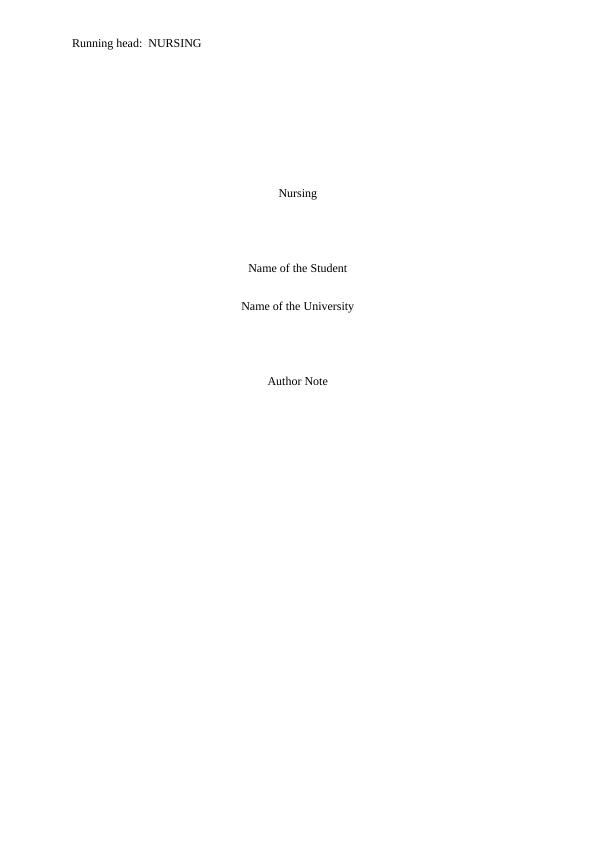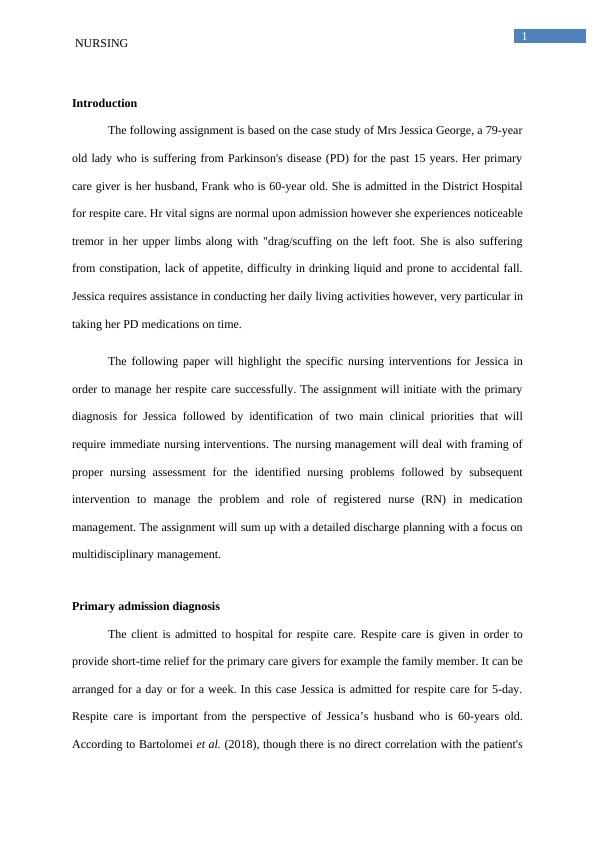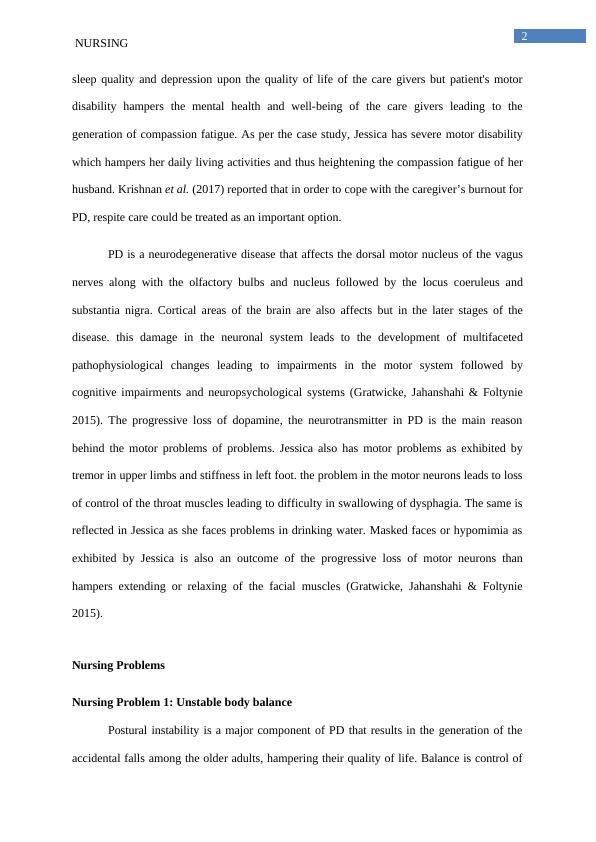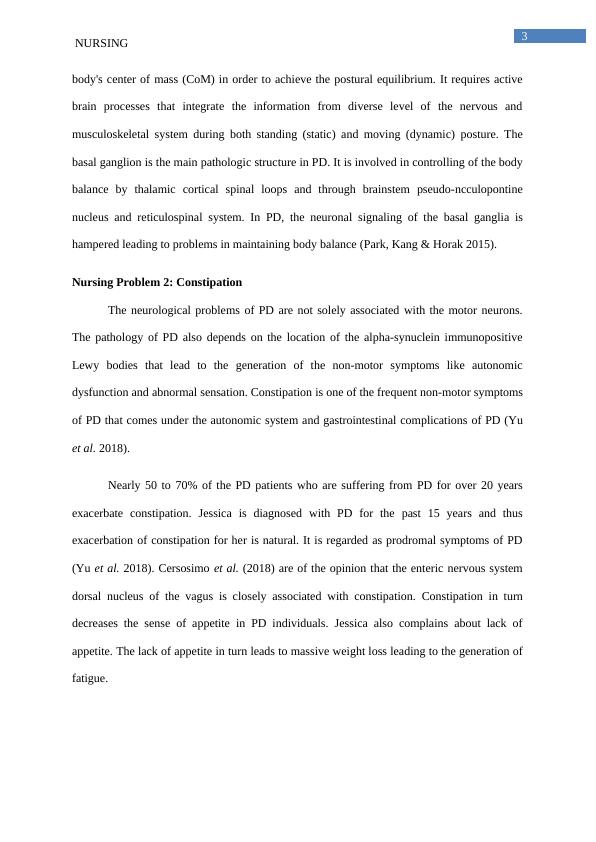Nursing Interventions for Respite Care: A Case Study of Mrs. Jessica George
11 Pages3163 Words57 Views
Added on 2023-01-13
About This Document
This assignment focuses on the nursing interventions for Mrs. Jessica George, a 79-year old lady suffering from Parkinson's disease, during her respite care. It discusses the primary diagnosis, nursing problems, nursing management, and discharge planning. The assignment also highlights the role of registered nurses in medication management and the importance of a multidisciplinary approach.
Nursing Interventions for Respite Care: A Case Study of Mrs. Jessica George
Added on 2023-01-13
ShareRelated Documents
End of preview
Want to access all the pages? Upload your documents or become a member.
Care for a Parkinson’s Disease Patient
|11
|2642
|384
Nursing: Clinical Case Report
|9
|2616
|92
Nursing Care for Parkinson's Disease: A Case Study
|10
|3306
|79
Case Report for Specific Patient
|10
|2780
|84
Report on Health of Older Adults - Mr Charles Williamson
|10
|2625
|63
Nursing Problem Report (Doc)
|11
|3321
|36




